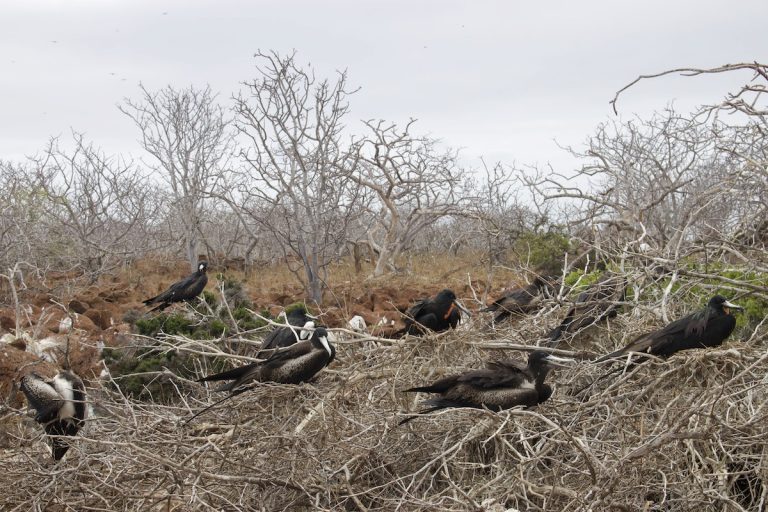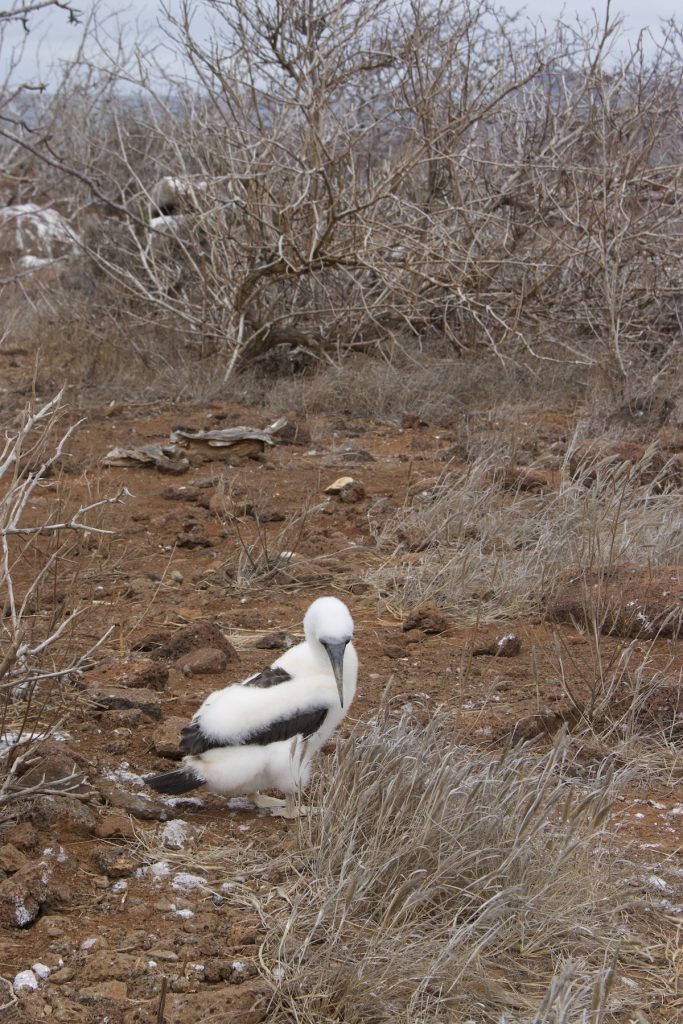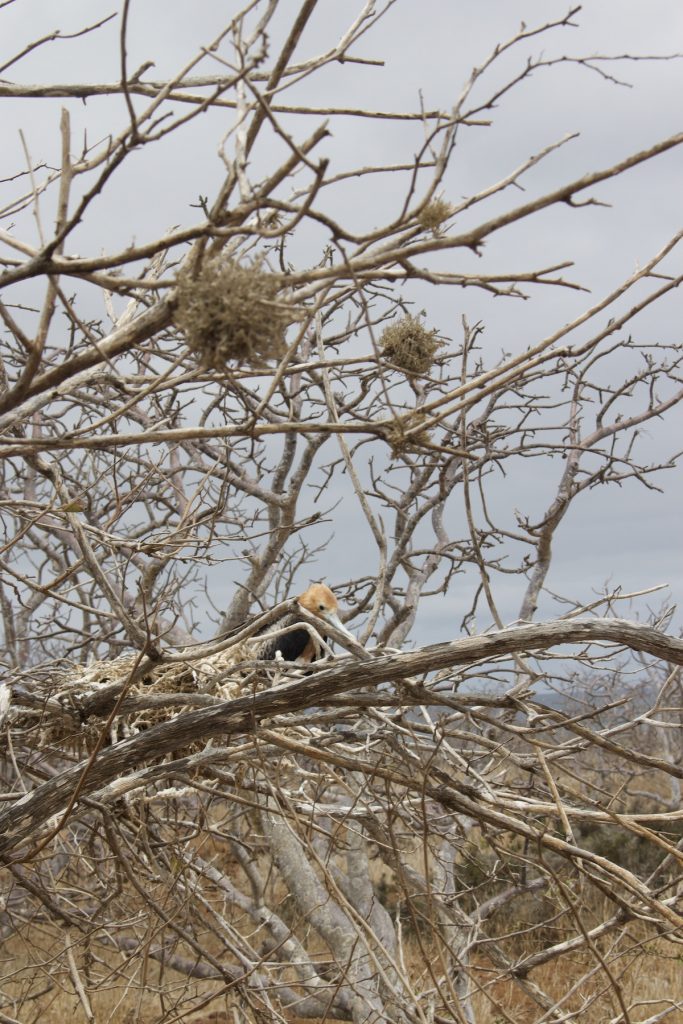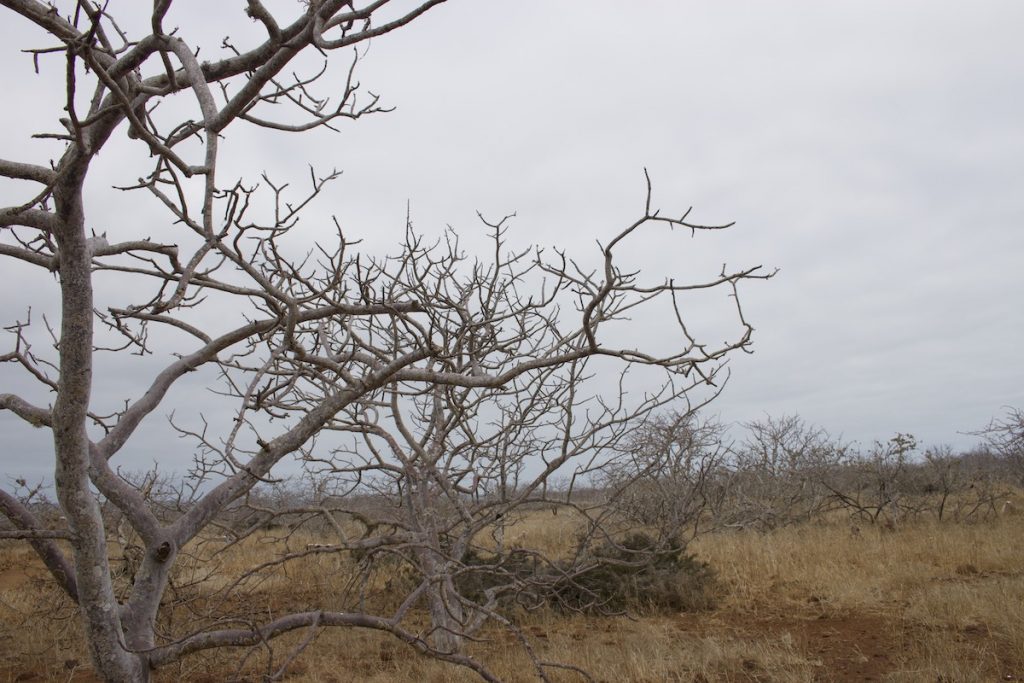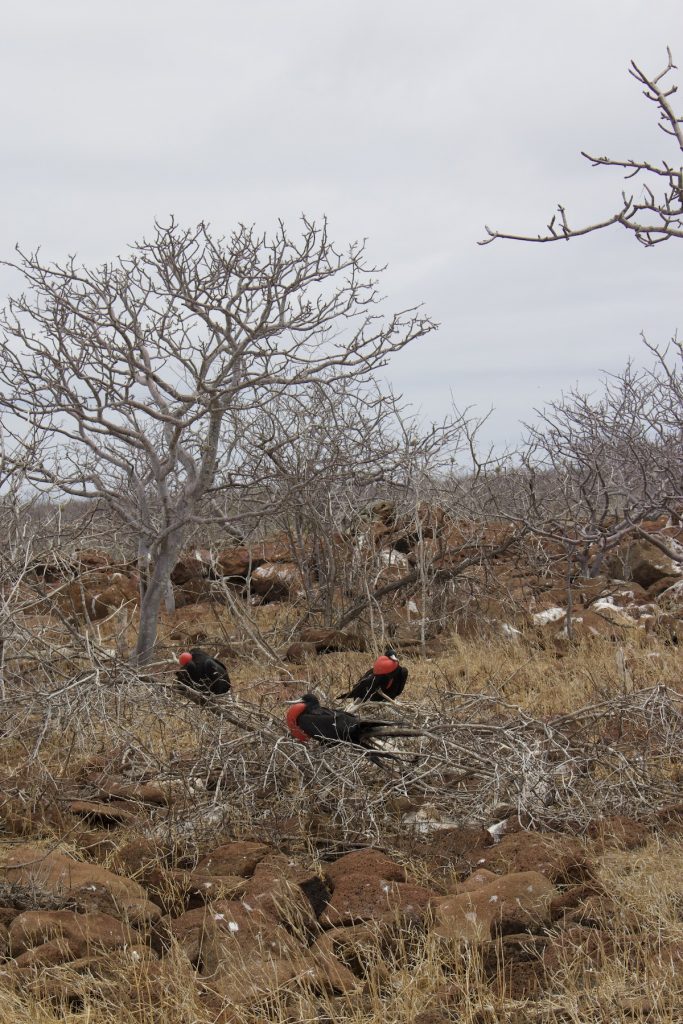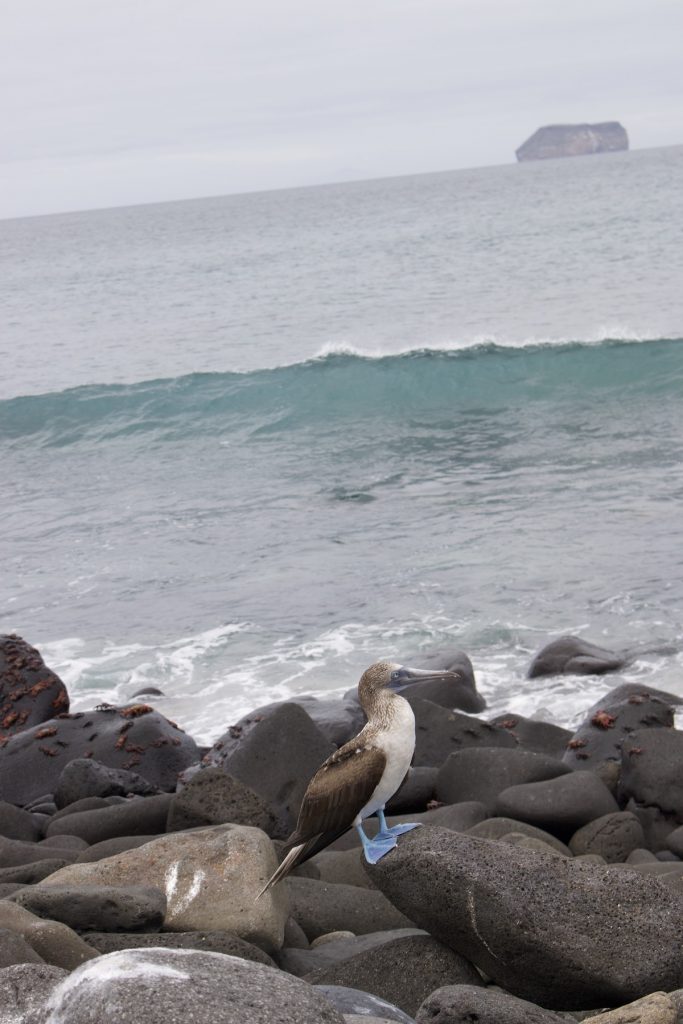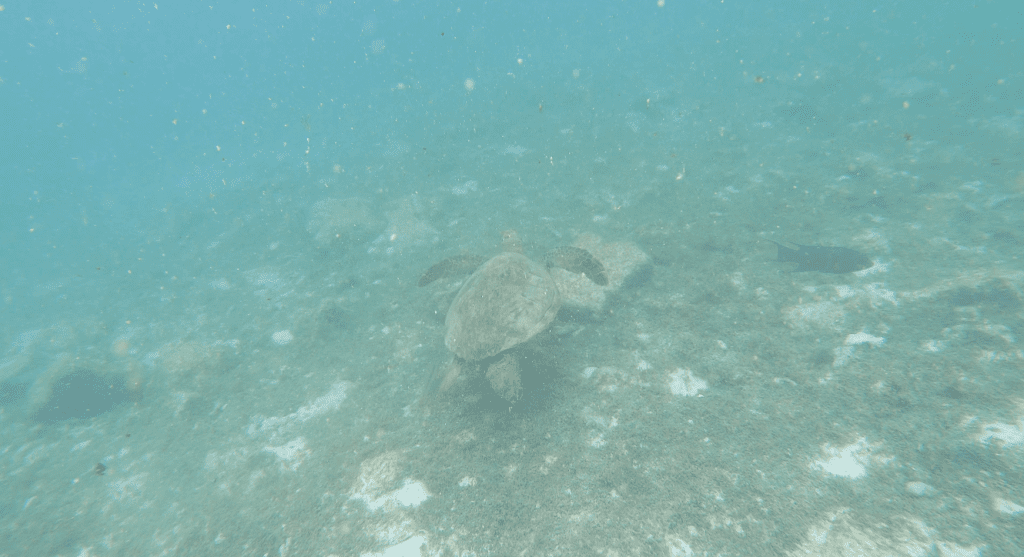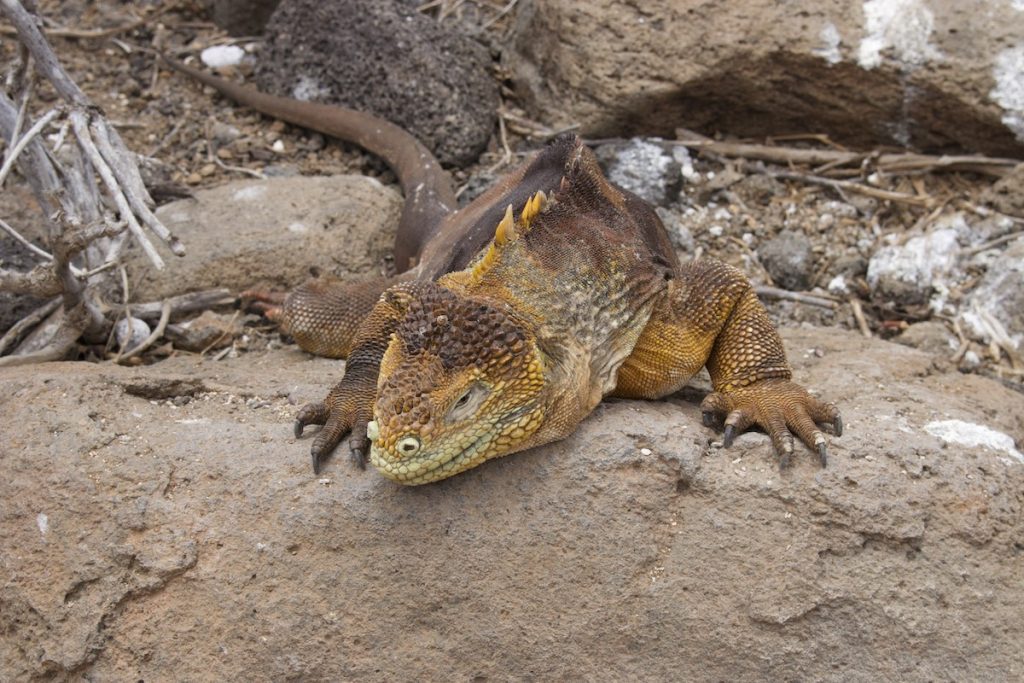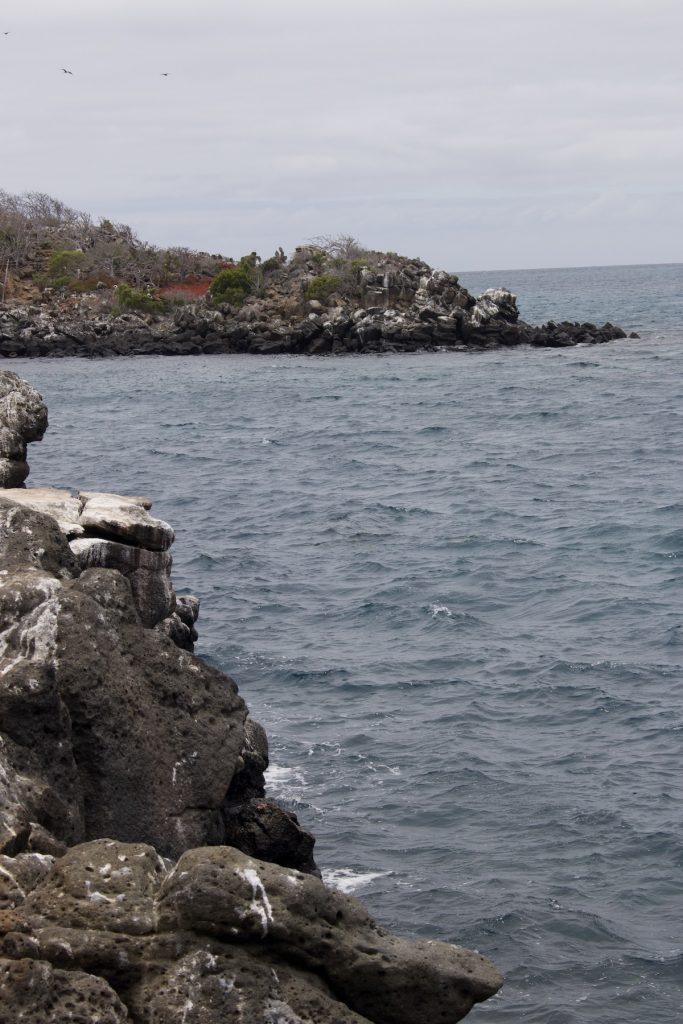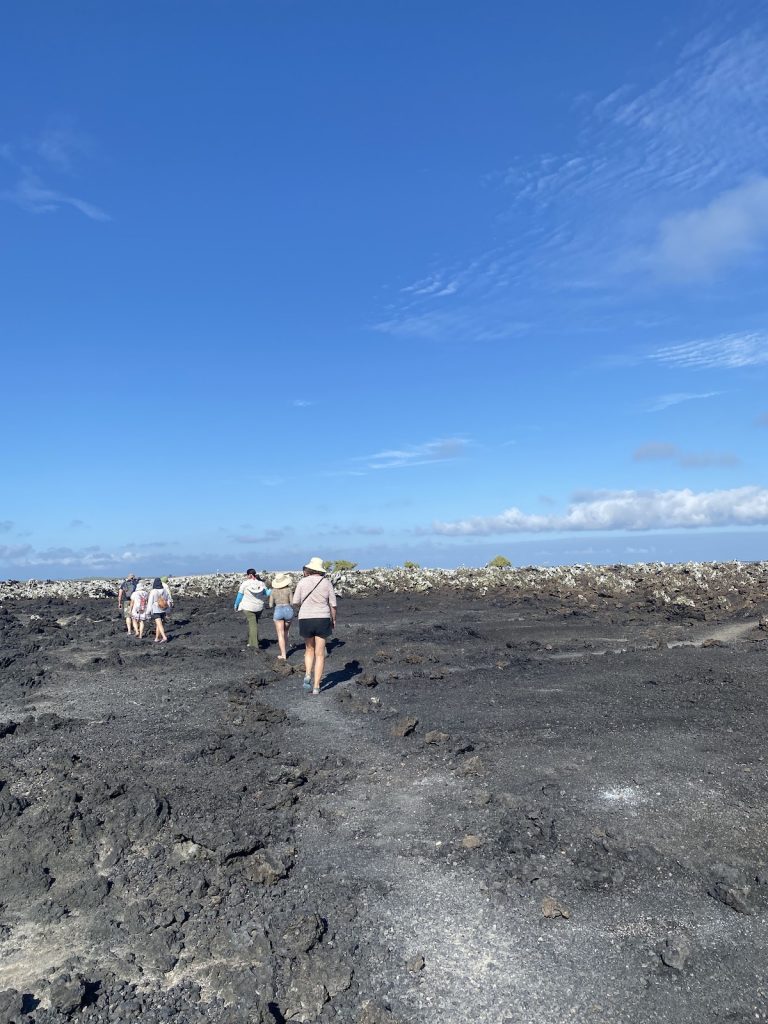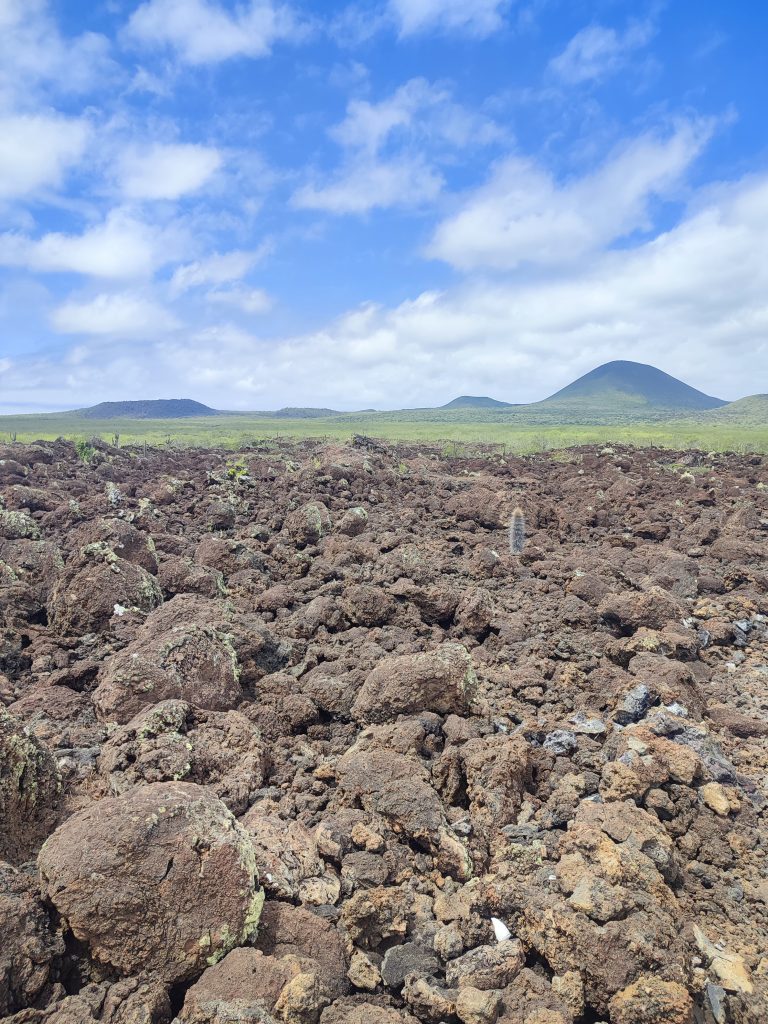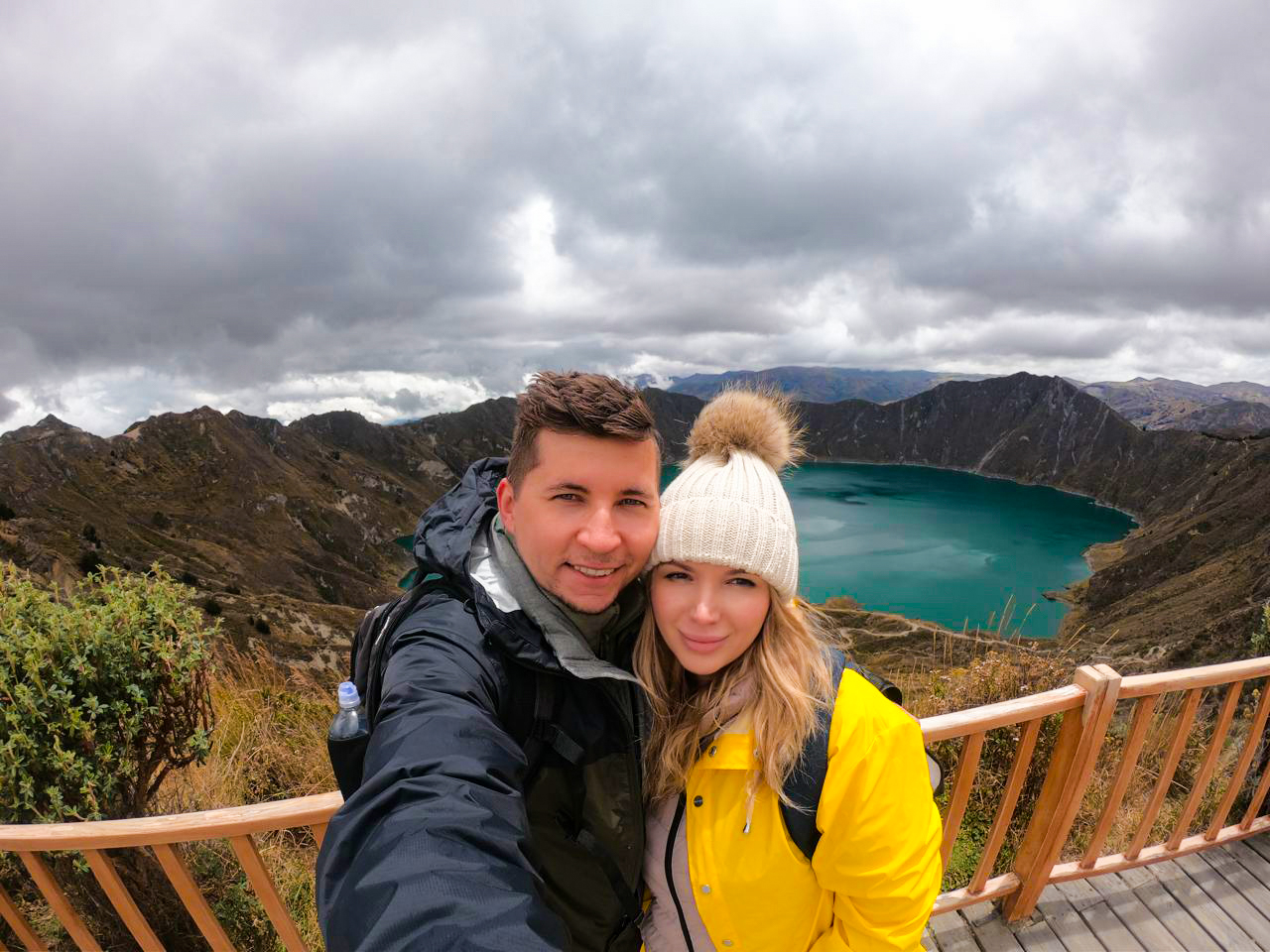North Seymour Island sits right in the heart of the Galapagos archipelago, making it one of the prime spots for birdwatching in the Galapagos. This small island is just 0.73 square miles (1.9 square kilometers) in size, nestled between Baltra and Santa Cruz islands. Interestingly, North Seymour wasn’t formed by volcanic activity like many other islands here; instead, it rose from the ocean floor due to seismic activity. The island’s tourist path is wonderful for exploring and stretches about 1.2 miles (two kilometers) inland and toward the coast. Its highest point is only about 92 feet (28 meters), which gives it a relatively flat landscape, perfect for easy exploration.
I shared some video footage from North Seymour Island in my big video about Galapagos Islands:
Looking back, visiting North Seymour required careful timing – from choosing the best season for bird courtship displays to finding optimal snorkeling conditions. Skip the uncertainty I faced and get a FREE personalized Galapagos trip quote from my trusted local experts who know exactly when and how to experience this wildlife haven. Your booking helps support both this blog and local Galapagos communities.
Plan perfect trip to Ecuador & Galapagos
I spent countless hours researching everything about traveling to Ecuador, and I created this blog for fellow travel enthusiasts who want the best, most reliable information. But if you want to save time, we’ve partnered with the top local agency to plan your dream trip.
How to Get to North Seymour Island
North Seymour Island is conveniently located just about an hour’s sail from the Itabaca Channel, which makes it an easy and worthwhile day trip from Puerto Ayora on Santa Cruz Island. Whether you’re on a land-based Galapagos tour or cruising through the islands, North Seymour is a must-see destination. It’s a favorite stop on many itineraries, offering travelers a unique chance to see diverse wildlife up close.
Activities in North Seymour Island
A hike around North Seymour Island offers a relaxing yet fascinating way to observe the unique seabird nesting sites up close. It’s one of the best places to experience the remarkable variety of birdlife, and for those who love the water, the island is also a fantastic spot for snorkeling. The surrounding waters are rich in marine life, making North Seymour a prime location for both birdwatching and underwater exploration.
Trekking in North Seymour Island
Disembarking at North Seymour’s dry dock can be a bit challenging due to the rough landing conditions, so we took extra care when stepping off the panga. The circular trail for visitors is well-planned, covering both the coastal and interior areas of the island. This path is relatively flat and easy to navigate, leading us through a unique landscape filled with palo santo trees and opuntia cactus groves, making it feel like we were stepping into another world.
During our visit, we walked the route near the nesting location of blue-footed boobies. It was amazing to witness their spectacular mating dance up close. This unique behavior happens during their breeding season, from June through August, making it a real treat for us to observe.
As we continued along the trail, we kept our eyes peeled for land iguanas lounging in the shade of the opuntia cacti. They blended in seamlessly with the scrubland, their natural camouflage making it a bit of a challenge to spot them at first. The walkway eventually led us back to the dry dock, where our boat was waiting, ready to take us back after an unforgettable experience on North Seymour Island.
Snorkeling in North Seymour Island
Snorkeling in the Galapagos Islands always promises an adventure. While practically every island offers incredible snorkeling spots, North Seymour stands out as one of the most popular sites for snorkeling and diving in the archipelago. However, I wouldn’t say it’s the best; for truly exceptional snorkeling, Pinzon Island took the crown for us.
The cold, nutrient-rich waters around North Seymour, created by the upwelling phenomenon, provide excellent conditions for marine life. There are several snorkeling spots here, and our naturalist guide chose the one with the best conditions for that day. Thankfully, the currents here are usually manageable, making it a comfortable spot for most swimmers.
We encountered green sea turtles, playful sea lions, whitetip reef sharks, and a variety of vibrant reef fish, including King Angelfish, Parrotfish, Hogfish, and Rays. For the lucky snorkelers among us, there was even a chance to catch a glimpse of Hammerhead or Tiger sharks cruising the depths, adding a thrill to an already remarkable underwater experience.
Diving on North Seymour Island
Diving is also a popular activity on North Seymour Island. There are tour companies that offer diving tours and include North Seymour Island in their itineraries. The site is ideal for all levels of divers however, you should be aware that there are strong currents at times. While diving, you will see platform reefs with a diversity of species.
Wildlife in North Seymour Island
- A big permanent colony of blue-footed boobies makes it an excellent location for seeing their famed mating ritual (usually from June to August).
- Magnificent and Great frigate birds build their nests in shrubs, expanding their crimson pouches to attract a female partner (the best month for this spectacle is June). See if you can tell the difference between the two species.
- North Seymour is home to one of the Galapagos’ greatest sea lion colonies.
- Keep an eye out for Galapagos Land Iguanas, which blend in with the barren scrub.
- Snorkel among hundreds of vibrant Galapagos fish, sea lions, reef sharks, sea turtles, sting and manta rays, eels, and maybe hammerhead sharks.
Trust me, while North Seymour’s birds are amazing, combining land and water activities makes for an unforgettable day! Want an expertly planned itinerary that balances birdwatching with snorkeling and ensures you don’t miss any wildlife encounters? Get a FREE quote from my recommended local agency. Your booking supports this blog and local Galapagos businesses.
Best Time to Visit North Seymour Island
Have questions about your upcoming Galapagos trip? Join my Galapagos Reddit community and ask other travelers who recently visited the islands. Get up-to-date tips, real experiences, and honest advice from other travelers (I ban tour agencies and resellers).
North Seymour Island is a wonderful place to visit any time of year. If you’re like us and prefer slightly milder temperatures, consider planning your Galapagos trip between June and September, when the weather cools off by a few degrees.
On the other hand, if you don’t mind warmer and a bit wetter weather, January through May can be ideal. We found that North Seymour’s weather doesn’t shift too dramatically across the year, so truly any time is a good time to visit.
If wildlife is a priority, plan your visit in June. That’s when you can witness the amazing courtship dance of the blue-footed boobies and see the striking sight of male frigate birds with their impressive, inflated red pouches. Just a tip: book your tour in advance, as North Seymour is among the top spots in the Galapagos, and spots fill up quickly!
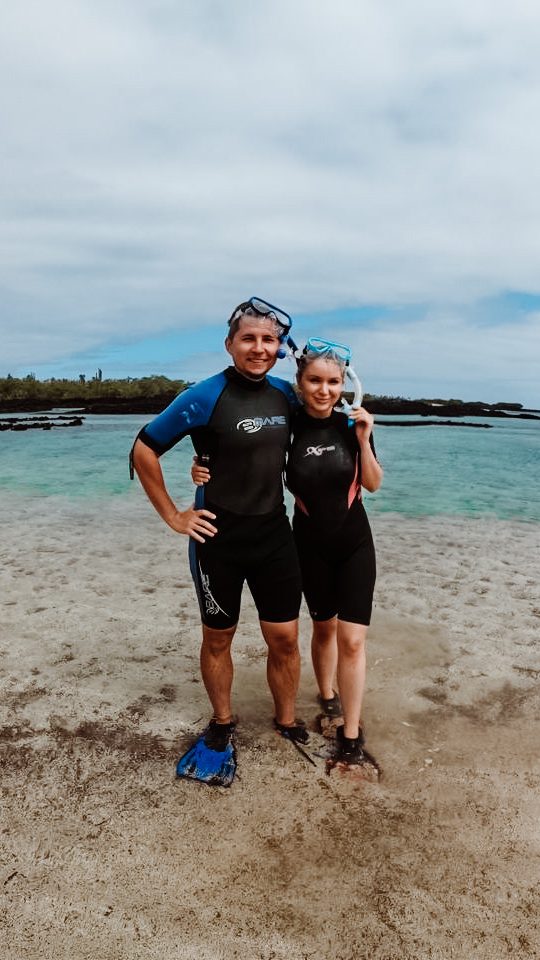
Planning trip to Galapagos Islands?
My wife and I spent two weeks on these magnificent islands, visited nearly every possible tour, and explored as much as we could. I shared all the important details in my comprehensive Galapagos Islands Travel Guide, where I cover everything you need to know about planning a trip to the Galapagos.
Galapagos Islands travel might surprise you with extra fees to enter the islands, the complicated logistics between islands, booking tours, and knowing which spots are free to explore and which ones are not. I’ve covered it all in this Galapagos Travel Guide.
Also, if you’re planning a trip to the Galapagos, make sure to use my link for discounted hotel prices via Booking.com. It really helps support my blog!
Bottom Line
When planning a Galapagos vacation, I’d definitely suggest adding North Seymour Island to your itinerary. This small island offers something for everyone, both on land and in the water. It’s one of the best spots for seeing large colonies of seabirds up close, and you can also enjoy a great snorkeling experience (though I’d say other spots like Pinzon Island are even better for snorkeling). North Seymour has a unique charm that makes it worth a visit for any nature lover!
Plan perfect trip to Ecuador & Galapagos
I spent countless hours researching everything about traveling to Ecuador, and I created this blog for fellow travel enthusiasts who want the best, most reliable information. But if you want to save time, we’ve partnered with the top local agency to plan your dream trip.

